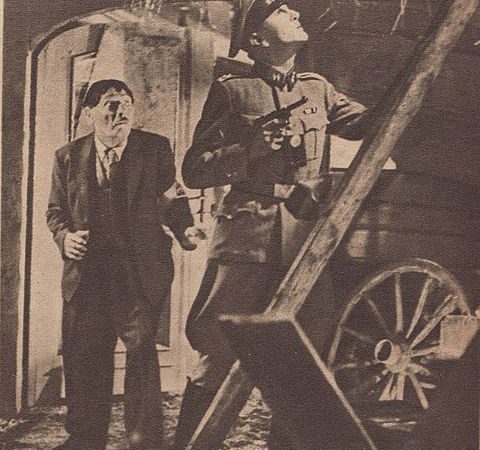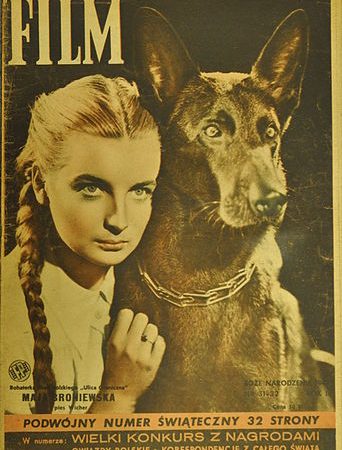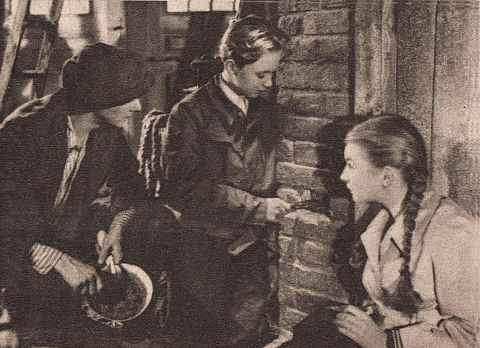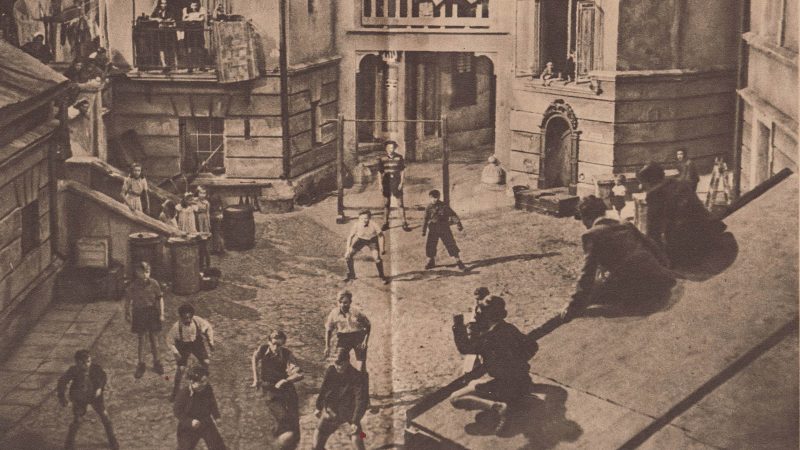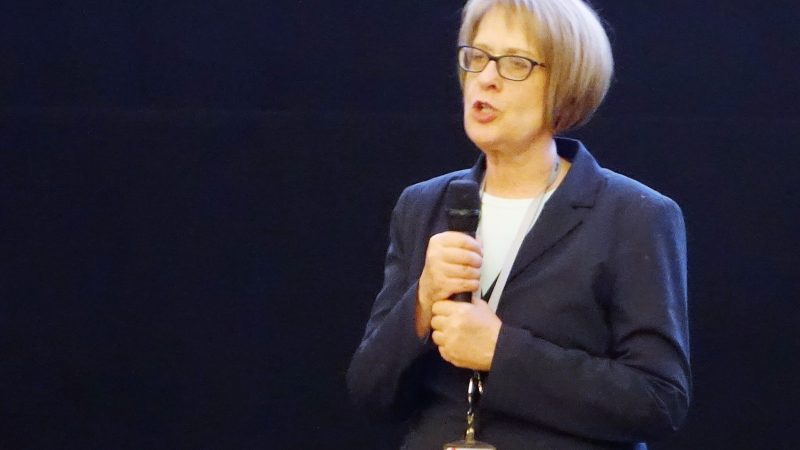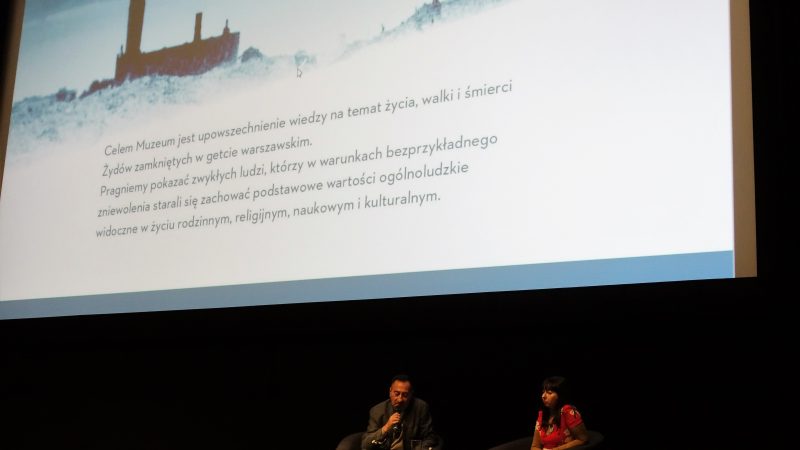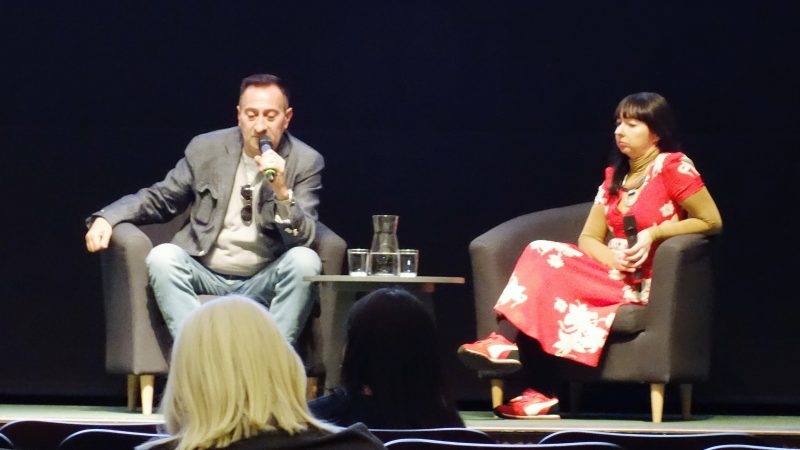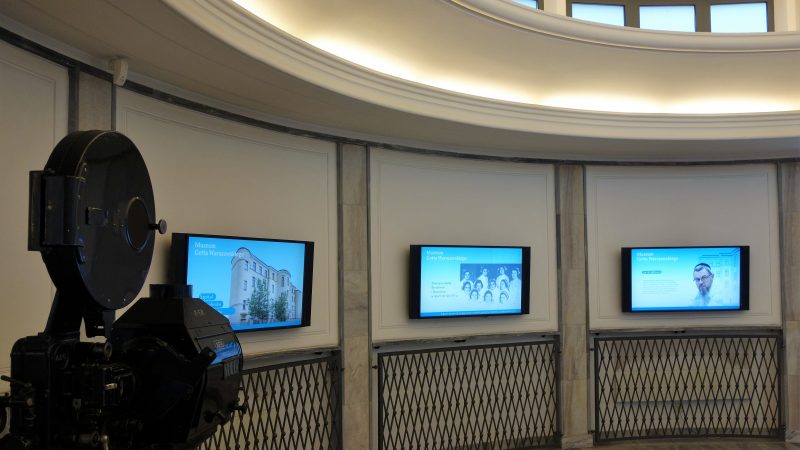Aleksander Ford’s Border Street in Iluzjon.
„A movie about small people against the backdrop of a great era”. The Warsaw Ghetto Museum, in cooperation with the Social and Cultural Association of Jews in Poland and the National Film Archive – Audiovisual Institute and Iluzjon Cinema, invited the audience to a special screening of Aleksander Ford’s 1948 war drama, awarded with a Gold Medal at the Venice International Film Festival. The free screening was organised as part of the 76th anniversary of the Warsaw Ghetto Uprising.
Border Street is the first post-war feature film of a multidimensional artists – avant-garde member of START association, who brought together independent, artistic, and engaged cinema (Legion of the Streets, People of the Vistula), adapted Marek Hłasko’s prose (The Eighth Day of the Week) and Leon Kruczkowski’s drama (The First Day of Freedom), and was the author of a gigantic, commercial success of Polish cinematography – Knights of the Teutonic Order, based on the novel by Henryk Sienkiewicz.
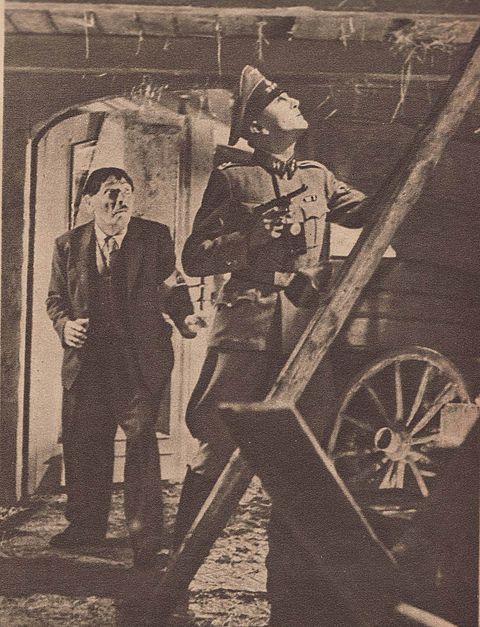
Aleksander Ford, in cooperation with Ludwik Starski and Jan Fethke, wrote the screenplay of a story that depicts the war life of Jewish and Christian communities, and especially children, living in the same Warsaw tenement house at Border Street, which neighboured the ghetto during the occupation. The film depicts various human approaches in the face of German terror – from patriotism to collaboration, from solidarity to small-mindedness and villainy. The diverse characters were played by actors such as Mieczysława Ćwiklińska, Jerzy Pichelski, Tadeusz Fijewski, Maria Broniewska, Edward Dziewoński, and Ida Kamińska.
The screening was preceded by an introduction by Dr Hanna Węgrzynek, Deputy Director for Research and Exhibition Programming, and it ended with an afterword by a film expert Anna Kilian (Warsaw Ghetto Museum) and Artur Hofman, Chairman of the Social and Cultural Association of Jews in Poland.
Free admission
Anna Kilian

